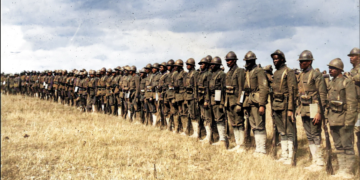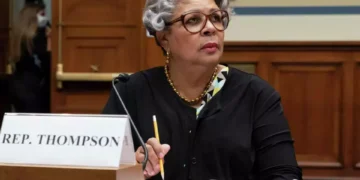June 16, 2025 Story by: Editor
As Americans across the nation prepare to commemorate Juneteenth, the observance is a celebration—it’s a long-overdue recognition of resilience, justice delayed, and the continuing pursuit of freedom.
While July 4th marks the United States’ declaration of independence from British rule, Juneteenth reflects a more complicated and hard-fought freedom: the end of legal slavery for the last remaining enslaved African Americans in Texas, two and a half years after the Emancipation Proclamation.
The Origins: Galveston, Texas, 1865
The roots of Juneteenth lie in the final chapter of American slavery. On June 19, 1865, Union Major General Gordon Granger arrived in Galveston, Texas—a remote Confederate outpost—and issued General Order No. 3, which declared:
“The people of Texas are informed that, in accordance with a proclamation from the Executive of the United States, all slaves are free. This involves an absolute equality of personal rights and rights of property between former masters and slaves, and the connection heretofore existing between them becomes that between employer and hired labor. The freedmen are advised to remain quietly at their present homes and work for wages. They are informed that they will not be allowed to collect at military posts and that they will not be supported in idleness either there or elsewhere.”
The announcement came two and a half years after President Abraham Lincoln had signed the Emancipation Proclamation on January 1, 1863, a wartime executive order that declared enslaved people in Confederate states to be free. Due to limited Union enforcement in the deep South and Texas’s geographic isolation, slavery persisted in the state well beyond the Proclamation’s issuance.
For the approximately 250,000 enslaved African Americans in Texas, Granger’s arrival marked the long-awaited and shocking acknowledgment that they were, by law, no longer property. Many enslavers fled with their human chattel to Texas during the war, considering it a final stronghold for slavery. By the time the Union Army arrived, the state had become a bastion of Confederate resistance and delayed liberation.
Early Celebrations and Cultural Roots
Almost immediately, newly freed African Americans began marking “June Nineteenth”—soon colloquially called “Juneteenth”—as a sacred day of celebration. Across Texas, Black communities held church-centered gatherings, hosted barbecues, dressed in their finest clothes, and performed traditional music and dance. The day became a space to reclaim identity, affirm freedom, and honor ancestors whose lives had been stolen or stifled under the yoke of slavery.
Over the decades, Juneteenth spread from Texas to neighboring states as part of the broader Great Migration, during which millions of African Americans moved north and west in search of opportunity and safety. Wherever Black communities formed, Juneteenth often came with them.
Yet, as Jim Crow laws took hold in the South and racial violence intensified, many public Juneteenth celebrations were driven indoors or out of sight. By the mid-20th century, the holiday’s public visibility had diminished in many areas, even as it remained vibrant within Black communities and churches.
Official Recognition: From Texas to Washington, D.C.
In 1980, Texas became the first state to officially recognize Juneteenth as a state holiday, due in large part to the work of state legislator and civil rights advocate Al Edwards. Over the next four decades, a growing number of states followed suit, though most offered only symbolic recognition without formal closure of government offices or public schools.
Momentum built significantly in the 2010s, driven by renewed conversations around systemic racism, mass incarceration, and police violence, particularly in the wake of national tragedies involving Black Americans.
On June 17, 2021, President Joe Biden signed the Juneteenth National Independence Day Act, making it the 11th federal holiday and the first new federal holiday since Martin Luther King Jr. Day was established in 1983. The law passed with overwhelming bipartisan support, though not without debate over its symbolic vs. substantive impact.
Juneteenth Today: A Living Legacy
Now observed across all 50 states and recognized federally, Juneteenth is far more than a historical footnote. It is a living tradition that blends the joy of emancipation with the burden of memory.
Institutions like the National Museum of African American History and Culture (NMAAHC) offer special programming to help Americans engage with the meaning of Juneteenth. Their curated online exhibitions and oral histories help ground the holiday in its broader historical context, connecting the past to present-day struggles for equity and freedom.
The National Park Service (NPS) also plays a vital role, offering resources and organizing educational events at sites connected to Black history and emancipation, such as the Frederick Douglass National Historic Site and the Port Royal site in South Carolina.
The Work Ahead
While Juneteenth has become a cause for celebration, many scholars, activists, and community leaders stress that its true spirit calls for critical reflection on the status of Black freedom today. Issues such as wealth inequality, housing discrimination, voter suppression, and police brutality underscore the fact that legal freedom and lived equality remain separate realities for many Americans.
Final Thoughts
Juneteenth occupies a unique place in the American story. It is a second Independence Day that not only marks the end of slavery but confronts the country’s paradox: a nation founded on liberty that denied it to millions. As the U.S. continues to reckon with that legacy, Juneteenth serves as both a commemoration of the past and a compass for the future.
Sources: Congress.gov / Freedman’s Bureau / National Park Service / National Museum of African American History and Culture

















